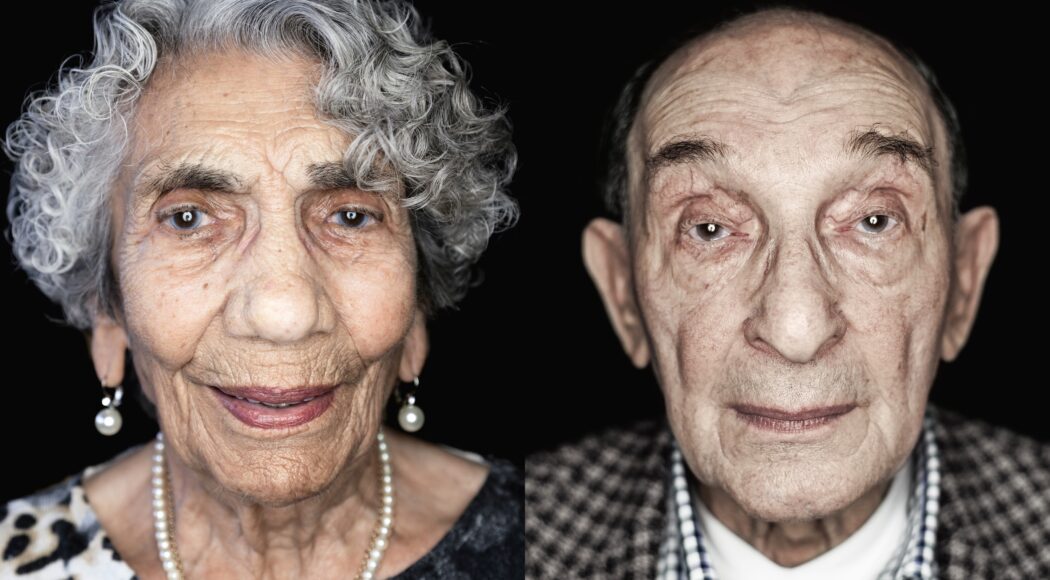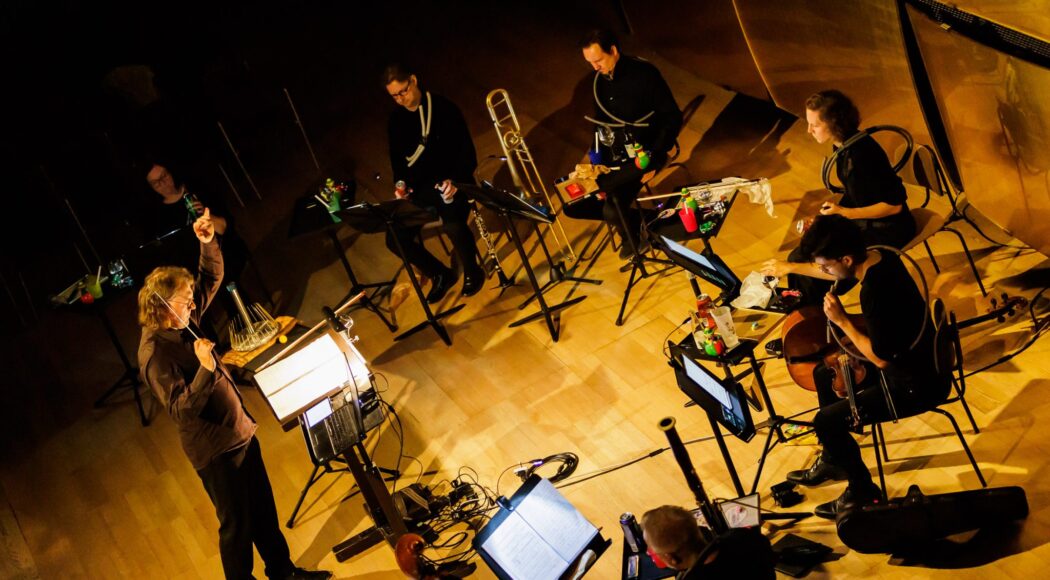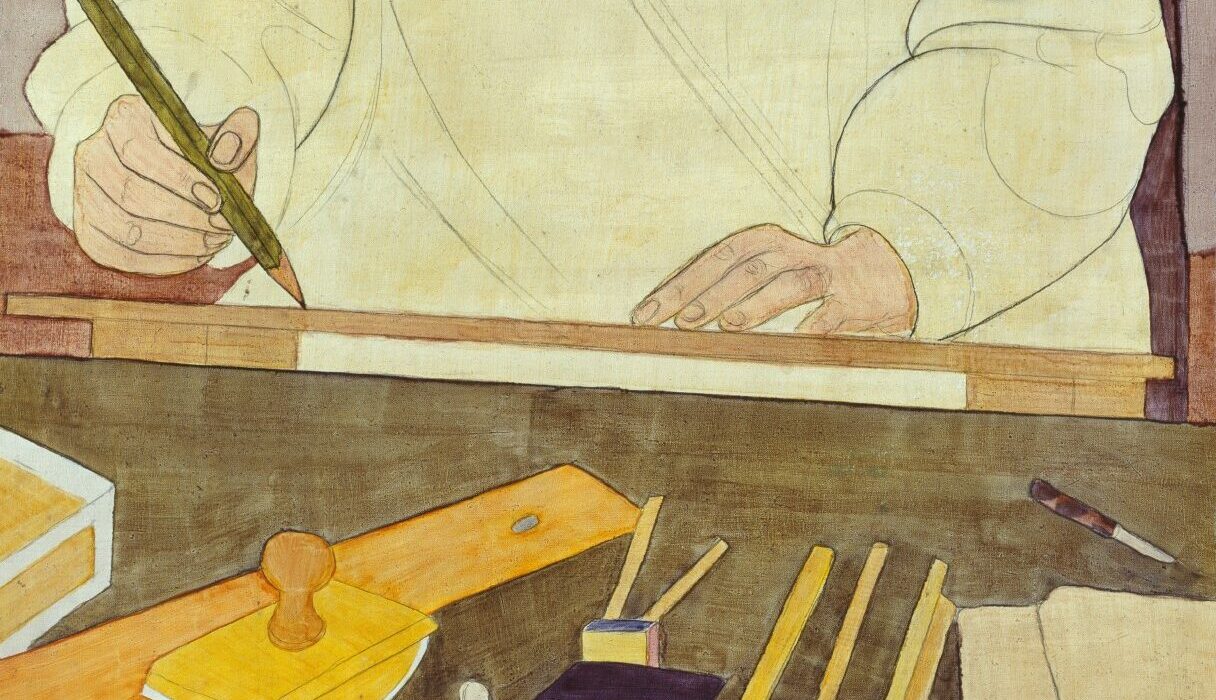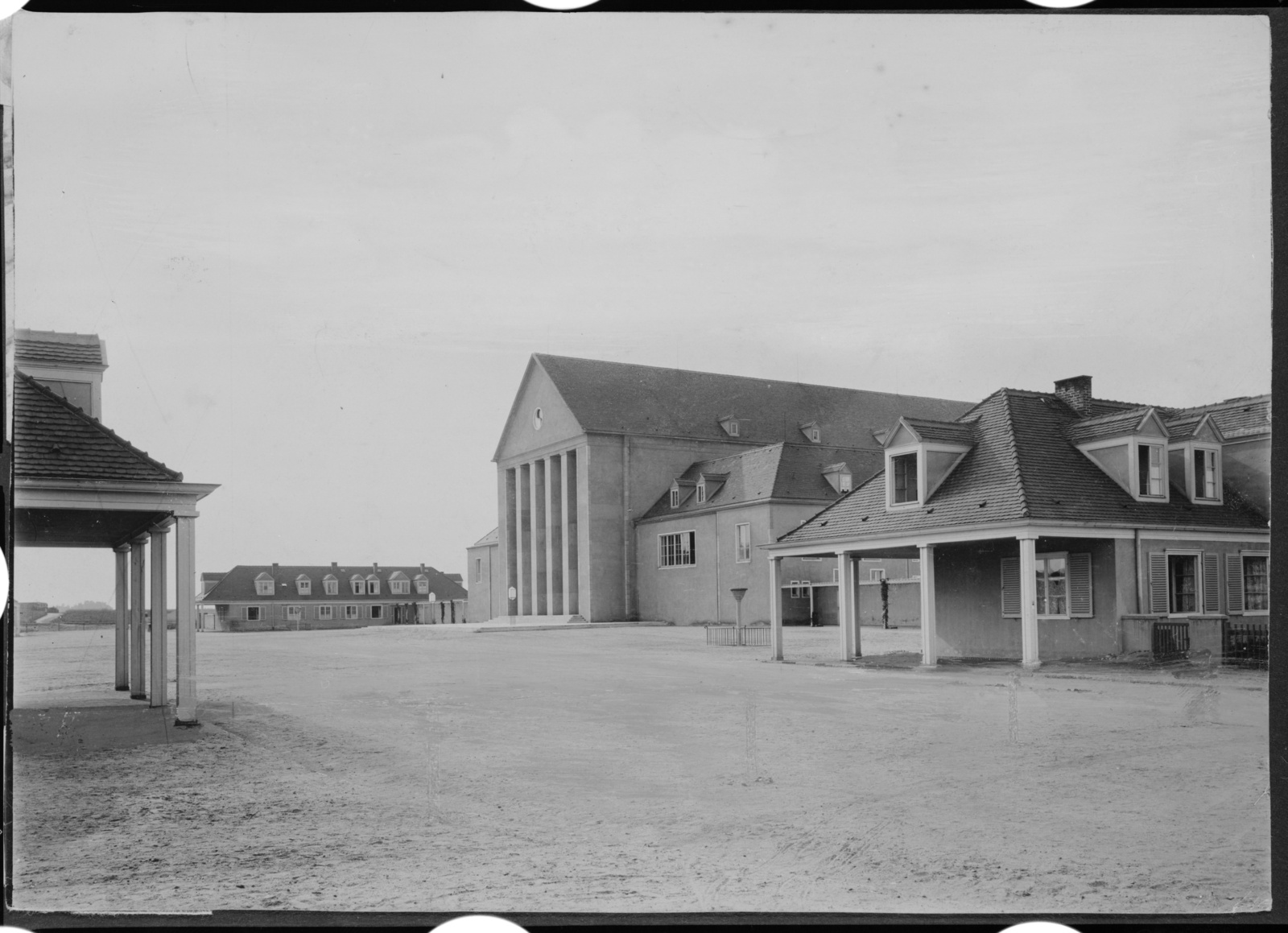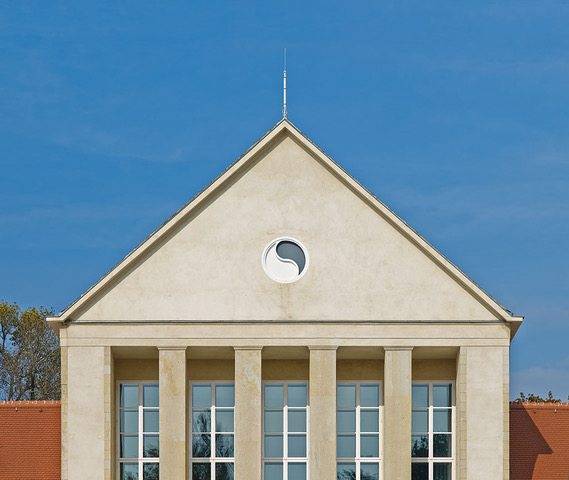Musik versus Barbarei
œnm. œsterreichisches ensemble fuer neue musik
The œnm . œsterreichisches ensemble fuer neue musik is one of the most established European ensembles for the interpretation of 20th and 21st century music. With its concert program “Music versus Barbarism”, the ensemble will be performing an impressive and admonishing program on 14 February. In addition to Rudi Stephan’s Music for Seven String Instruments (1911), the program includes works by Schönberg, Ullmann and Regamey, which were composed in close proximity to each other during the darkest years of the 20th century: Schönberg’s “Ode to Napoleon Bonaparte” (1942) is a commitment to democracy and against tyranny, Viktor Ullmann composed his Third String Quartet (1943) in the Theresienstadt concentration camp. The confrontation with persecution and terror also left deep marks on Constantin Regamey’s life. His quintet was composed between 1942 and 1944 during the most difficult years of his life, when he was active in the anti-fascist resistance. Rudi Stephan’s music is a testimony to early modernism, created by a composer who was one of the strongest talents of the dawning 20th century and who died in the trenches of the First World War near Tarnopol in Galicia in 1915 at the age of 28.
Duration: ca. 1 h 45 min, with intermission
To accompany the events in the Great Hall, HELLERAU, in cooperation with the Frauenkirche Dresden Foundation, is showing 10 large-format portraits from the photo series ‘Against Forgetting’ by the German-Italian photographer Luigi Toscano in an exhibition in the foyer of the Festspielhaus from 14 – 16 February. In the Ecksalon and Studio West of the Festspielhaus, Dresden artist David Adam will present his exhibition project ‘Memory of the Present’. Both exhibitions are open on all three days from one hour before the start of the event.
The exhibitions ‘Gegen das Vergessen’ (Lest We Forget) by Luigi Toscano and ‘Erinnern der Gegenwart’ (Memory of the Present) by David Adam will open at 18:00. A discussion with installation artist Susan Philipsz and music dramaturge Jens Schubbe will take place in the Dalcroze Saal at 19:00.
Photo portrait: Zilli Schmid as part of the photo series “Against Forgetting” by Luigi Toscano
Program
Arnold Schönberg (1874 – 1951)
Ode to Napoleon Buonaparte for speaker, string quartet and piano op. 41 (1942)
Constantin Regamey (1907 – 1982)
Quintett for clarinet, bassoon, violin, violoncello and piano (1942-44)
Viktor Ullmann (1898 – 1944)
String quartet Nr. 3 op. 46 (1943)
Rudi Stephan (1887 – 1915)
Music for seven string instruments (1911)
Participants
œnm. œsterreichisches ensemble fuer neue musik
Theodor Burkali. Clarinet
Žarko Perišić. Bassoon
Michaela Girardi, Sandra Marttunen. Violin
Sarah Dragovic. Viola
Jessica Kuhn. Cello
Paul Georg Salomon. Doublebass
Nora Skuta. Piano
Lotte Krüger. Harp
Solist: Christopher Lemmings. Vocals
The œnm – österreichisches ensemble für neue musik – is one of the leading ensembles for music of the 20th and 21st centuries and was founded in Salzburg in 1975. It emerged from the collaboration of composers and musicians and developed into a renowned soloist ensemble. With a focus on contemporary music, the œnm regularly performs at international festivals and works with renowned artists such as Johannes Kalitzke, Steve Reich and Wolfgang Rihm. It has been organizing “studio concerts” in Salzburg since 2011 and received the Bank Austria Art Prize for Music Education in 2012. Releases by the ensemble have appeared on labels such as NEOS and Deutsche Grammophon.
Prof. Susan Philipsz (*1965 in Glasgow) is one of the most important international sound artists of the present day. Since 2019, the TURNER prizewinner has headed the sculpture and spatial concepts class at the HfBK Dresden. As a trained sculptor, she explores the boundaries between sculpture and sound, between materiality and immateriality. One of her focal points is the artistic exploration of themes of transience and memory as well as the momentous war experiences of the 20th century. In her work ‘Study for Strings’, created for Documenta 2012 and adapted for the Albertinum in Dresden in 2018, Susan Philipsz explores the themes of loss, separation and deportation. Her score is based on the piece ‘Study for String Orchestra’ by the Jewish composer Pavel Haas (1899-1944), who was deported to Theresienstadt concentration camp in 1941 and murdered in Auschwitz-Birkenau concentration camp in 1944.


